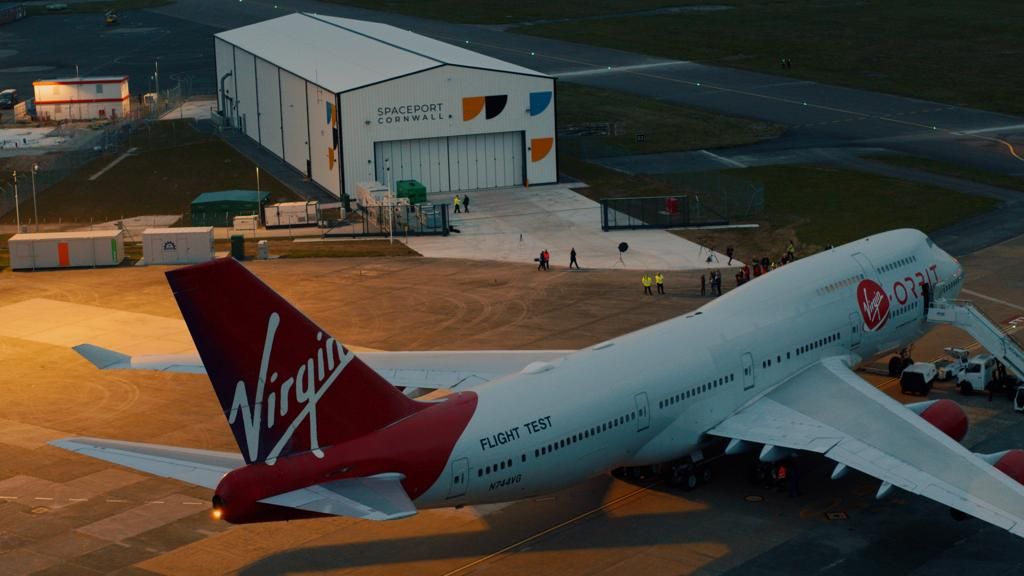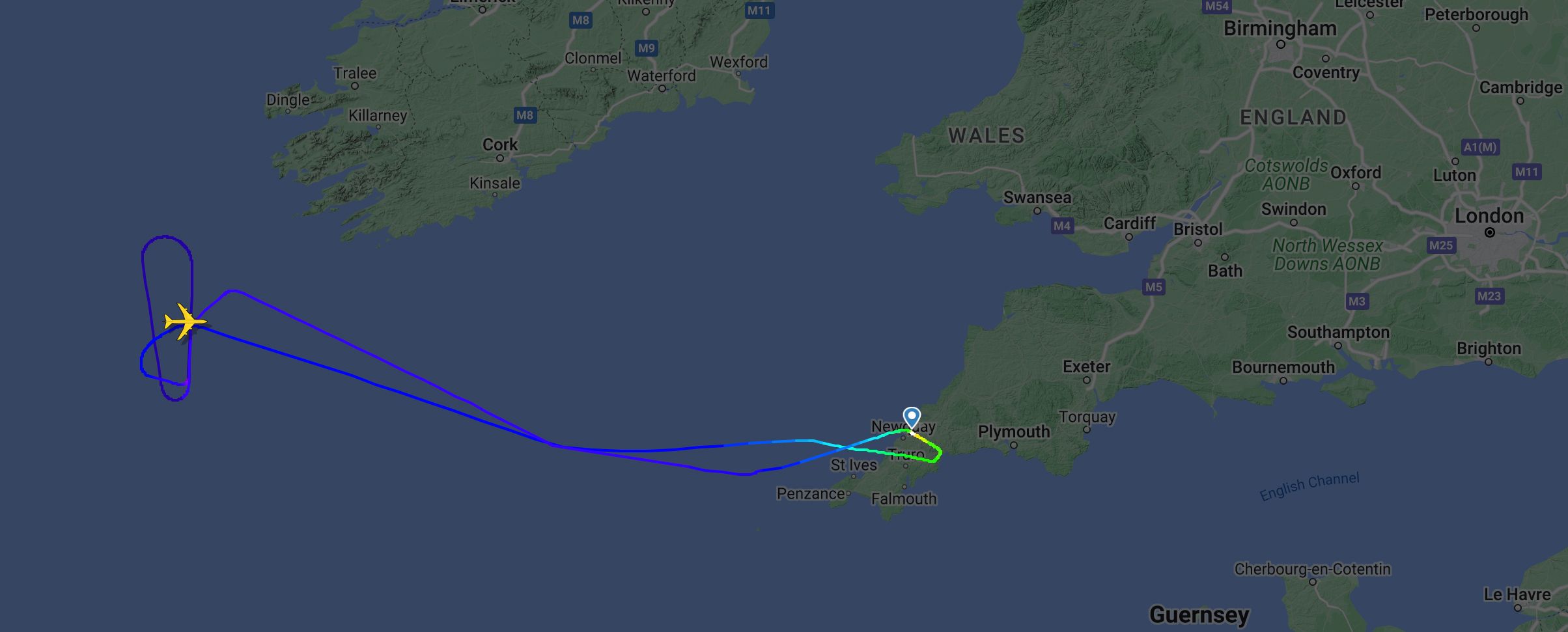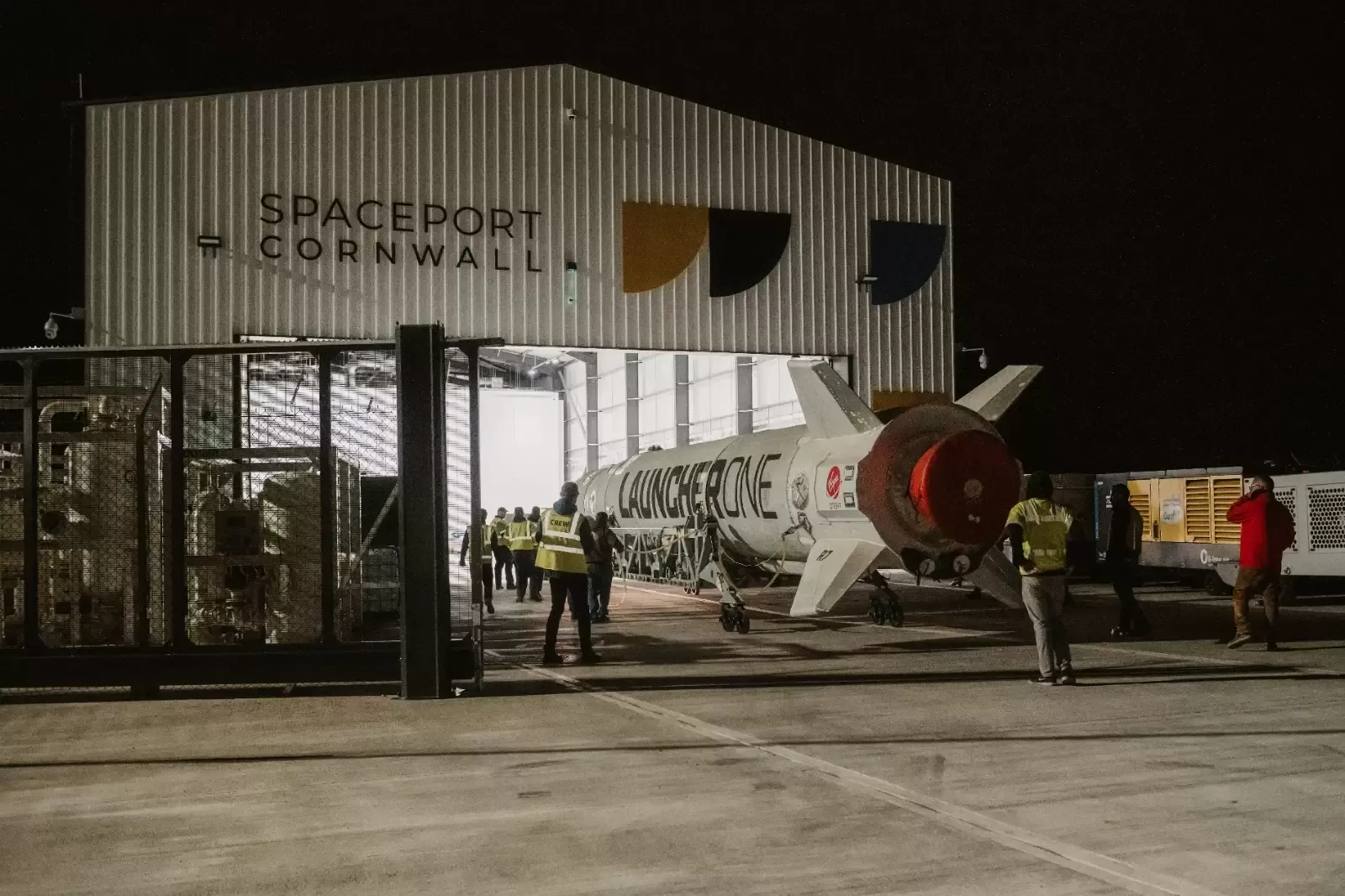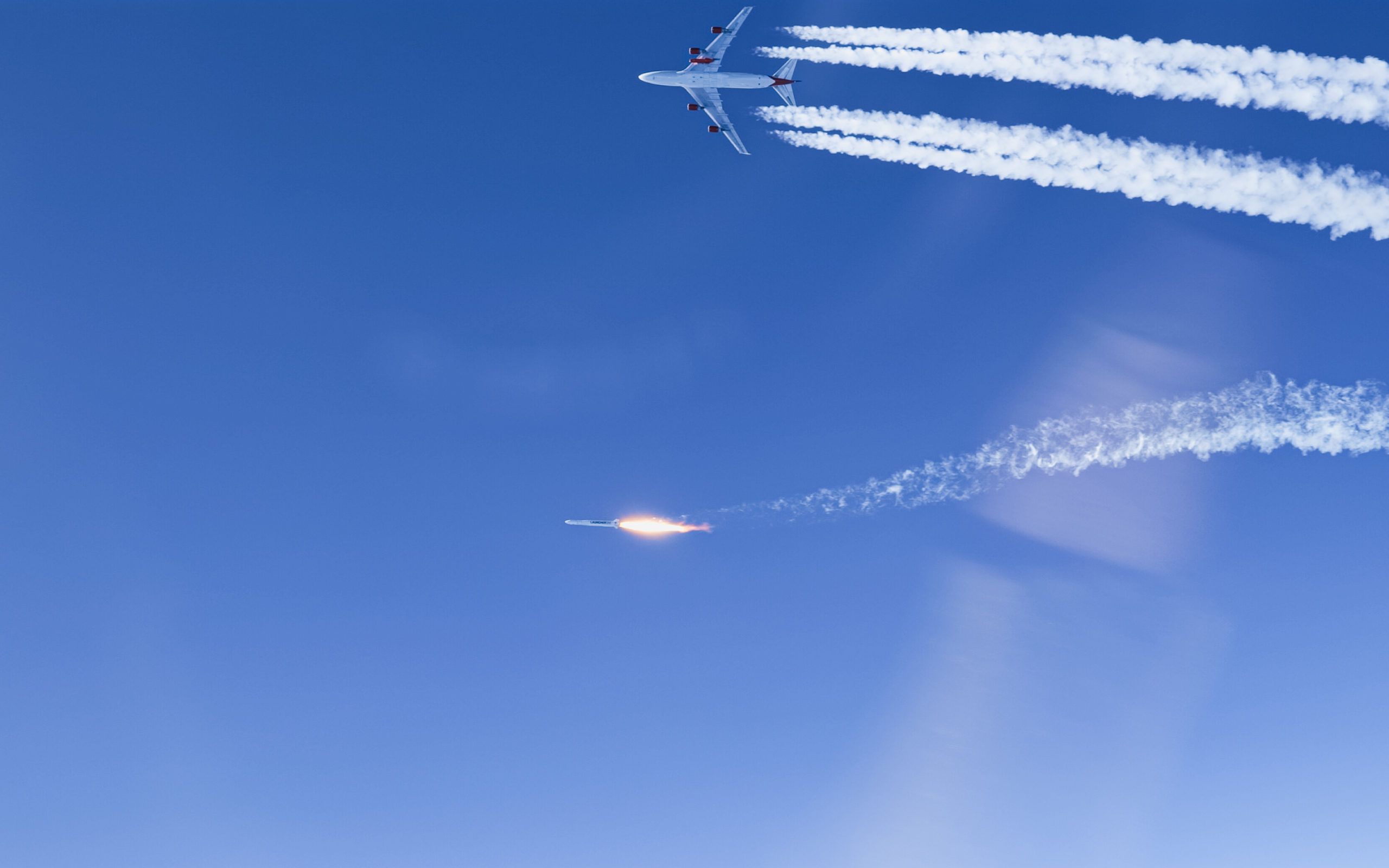The first orbital satellite launch to depart from Western Europe failed to reach its target orbit after a successful takeoff late Monday night. The Virgin Orbit rocket LauncherOne suffered what has been described only as an "anomaly" in the second launch phase after reaching space successfully.
The "Start Me Up" mission, named in honor of the legendary Rolling Stones song and carrying nine satellites, lifted off shortly after 22:00 on a converted jumbo jet called Cosmic Girl in front of 2,000 spectators at the newly inaugurated Spaceport Cornwall, the first base of its kind in the United Kingdom. The customized Boeing 747 carried the LauncherOne rocket system to the designated drop zone. It maintained a looping "racetrack" pattern as it awaited the final clear to launch called from mission command.
Cosmic Girl successfully released the rocket at 35,000ft above the Atlantic, off Ireland's southern coast, just before 23.15. The rocket then ignited its engines, quickly going hypersonic and successfully reaching space while Cosmic Girl successfully returned the crew to Spaceport Cornwall. The LauncherOne rocket was scheduled to pass Antarctica and Australia before enacting a final burn to take it into Low Earth Orbit and release its payload.
The flight then continued through successful stage separation and ignition of the second stage. At some point during the firing of the rocket's second-stage engine, the system experienced what officials have described only as an "anomaly," and the rocket, now traveling at a speed of more than 11,000 miles per hour, failed to reach the target orbit. Melissa Thorpe, Head of Spaceport Cornwall, expressed her continued confidence in the program despite the setback:
“We are so incredibly proud of everything we have achieved with our partners and friends across the space industry here in the UK and in the US – we made it to space – a UK first. Unfortunately we learned that Virgin Orbit experienced an anomaly which means we didn’t achieve a successful mission."
"Today we inspired millions, and we will continue to look to inspire millions more. Not just with our ambition but also with our fortitude. Yes, space is hard, but we are only just getting started.”
The launch event was attended by international news media and some 2,000 spectators who descended on what was formerly just a regional airport in the south of the UK. An official Livestream of the event peaked at 75,000 viewers, with a further 142,000 enthusiasts helping make Cosmic Girl's debut international mission the most-tracked aircraft on Flightradar24.
A multi-national payload
The launch vehicle, Cosmic Girl, arrived in Cornwall on October 11th, followed by the ground support equipment (GSE) and the LauncherOne rocket, which left California on a C-17 military aircraft later in the week. The payload consisted of satellites from the UK's Ministry of Defence, the sultanate of Oman, the US National Reconnaissance Office, and British startups such as Space Forge.
The mission was to send the satellites into Low Earth Orbit, where they would perform various functions, including evaluating the environmental impact of production, preventing illegal trafficking, smuggling, and terrorism, and providing for national security. Contents of the payload included the first ever satellite launched by the Sultanate of Oman focused on Earth Observation; Wales' first satellite, built by Space Forge; a Maritime monitoring payload built by Horizon Technologies and the Satellite Applications Catapult, alongside satellites from the Ministry of Defence and the US National Reconnaissance Office.
Get the latest aviation news straight to your inbox: Sign up for our newsletters today.
The UK has a strong history of manufacturing satellites and interpreting the data but has yet to launch satellites from British soil. Over 55 space companies, including Goonhilly, Avanti, Flann, and Exobotics, are already based in Cornwall. Across the UK, some 47,000 people work in the space industry, stimulating development, investment, and growth within the sector. Dan Hart, CEO of Virgin Orbit, spoke about the future of the program:
“While we are very proud of the many things that we successfully achieved as part of this mission, we are mindful that we failed to provide our customers with the launch service they deserve. The first-time nature of this mission added layers of complexity that our team professionally managed through; however, in the end, a technical failure appears to have prevented us from delivering the final orbit."
"We will work tirelessly to understand the nature of the failure, make corrective actions, and return to orbit as soon as we have completed a full investigation and mission assurance process.”
The satellites onboard are understood to have been lost in the subsequent reentry but were fully insured.
Cosmic Girl takes to the skies again.
The Boeing 747-400 (registration: N744VG) has flown on all the previous Virgin Orbit Missions. While Monday's mission did not achieve its final orbit, it still represents an important step in reaching space and achieving numerous significant first-time achievements. The launch also brought together new partnerships and integrated collaboration from a wide range of partners, including the UK Space Agency, the Royal Air Force, the Civil Aviation Authority, the US Federal Aviation Administration, and the National Reconnaissance Office, to demonstrate that space launch is achievable from UK soil.
Cosmic Girl initially flew for Virgin Atlantic before its retirement. The entire main deck interior was then gutted, removing all seats and overhead bins to get rid of unnecessary weight to eliminate extra weight. In contrast, the upper deck, which formerly hosted the Premium & Economy cabins, was transformed into a small mission control room for Launch Engineers to oversee missions during flight.
Its most recent mission, entitled Straight Up! in honor of the hit Paula Abdul single, successfully launched from Mojave Air and Space Port in July. Bringing the total number of successful launches to four, with 33 satellites now successfully launched into orbit. Matt Archer, Director of Commercial Spaceflight at the UK Space Agency, highlighted the agency's plan for the future:
“Last night, Virgin Orbit attempted the first orbital launch from Spaceport Cornwall. We have shown the UK is capable of launching into orbit, but the launch was not successful in reaching the required orbit. We will work closely with Virgin Orbit as they investigate what caused the anomaly in the coming days and weeks."
"While this result is disappointing, launching a spacecraft always carries significant risks. Despite this, the project has succeeded in creating a horizontal launch capability at Spaceport Cornwall, and we remain committed to becoming the leading provider of commercial small satellite launch in Europe by 2030, with vertical launches planned from Scotland.”
With a successful launch, Britain will become the first country in Europe to launch satellites on home soil. Only ten countries worldwide have achieved the feat to date: the US, Russia, India, Iran, North Korea, South Korea, Japan, China, and French Guiana, which serves as the spaceport for The European Space Agency.
Source: BBC, The Guardian, Virgin Orbit




